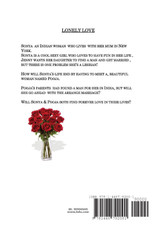These journal entries comprise two volumes of selections (1973-1982, 1982-1988). Volume I includes an Introduction and some biographical memories. As Stephane Mallarme considered literature the antithesis of journalism, a journal is often the antithesis of a diary. It is of less interest to record moods and events, or barriers to self-realization, than to have ideas and insights about these. As a journal-keeper, I am generally disinterested in diurnal details, unless these form the compost of deeper exploration or revelation, seeking insight into my condition, not simply its description.A journal, therefore, is often more complex and difficult than a diary, far less personal in depictions of daily fortune, using everyday experiences as a stepstool (at the least) to peer beyond the walls of psychological enclosure. I did not choose the journal form to mask the personal, to belittle or avoid it, but to reflect my most intimate assessment of the personal as contributing to something greater: comprehension.It is not enough merely to record the frustrations, joys or barriers of living, without appraising these for what they represent and suggest, where we learn not merely reiterate. The ideal criteria of selection and discrimination apply not only to one's journal, but to life as well, adding a mythological drama and perspective that immersion alone does not permit.In some ways, journalizing is similar in impulse to the pastoral ethos or motif familiar in contemplative writing from Virgil to Thoreau: one withdraws from active society, toward natural or rural settings, in search of some form of respite, then returns to tell of their discoveries. Some critics have seen this as the organizing design of most North American fables--in fact, as the American mythology, seeking to heal the serious schism between our natural psyche and its more devastated environment; that is, a search for a middle ground (or via media) between the primitive and the technologically complex.This volume of journal selections resembles that motif, focusing on the withdrawal phase of a generally recuperative metaphysical cycle. Such solitude is intentional, a critical phase in the live/withdraw/live-again cycle of spiritual refreshment. A recuperative isolation can be experienced daily, if one is discriminating in how their time is spent, but is usually gained more intensely over long, purposefully reclusive periods.The motivations for my withdrawal were several, perhaps the strongest a propensity (as described of another Irish writer) for being nearly overcome by the variety of life. If not overcome, certainly fatigued by events in and of themselves. A reflective silence seemed essential to examine the roots of this propensity. An ideal of pure time, free of most distractions (human or otherwise), was also necessary for writing of the sort that interested me, the personally contemplative or mystical. Only through such reflection could I ever achieve a meaningful connection with the more active life that surrounded me.The predominant experience of solitude--especially in a society where the value of withdrawal is suspect or sporadic--is the figurative isolation one experiences throughout the entire cycle of withdrawal and re-emergence. It is generally difficult for lovers of action to comprehend this attraction to non-doing. One of the aims of solitude is to reunite philosophy and religion, or rather philosophy and awe, to not accept the social impoverishment of these universal needs for knowledge and worship. The asceticism of retreat was not solely the traditional and philosophical appeal of simplicity, but the freedom from income-producing and time-consuming work it permitted. For the solitary, however, an ideal of pure time must be united with an ideal of intimate association, if the mystical quest is to be emotionally as well as spiritually and intellectually fulfilling. This search for integrality encompasses the richness


